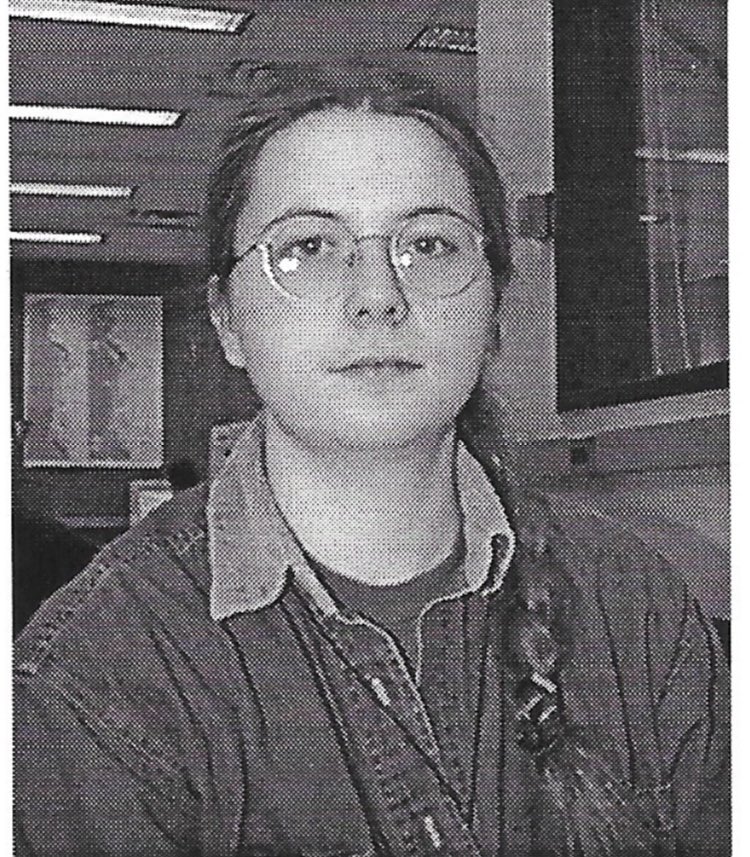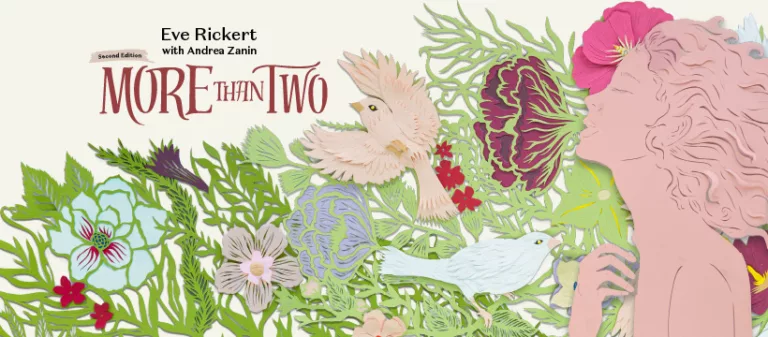Today is my wedding anniversary. My husband and I have been married for three years, together for more than thirteen. On our wedding day, we’d been living polyamorously for two years. His two partners—and their partners—attended our wedding. So today seems like a good day to talk about why someone who’s polyamorous might choose to get married.
It’s interesting. As a whole it’s not my monogamous friends who are puzzled by my marriage. It’s my poly friends. Why get married at all if you’re not going to spend your life with one person? Isn’t marriage a remnant of couple privilege, or of an archaic approach to relationships? Isn’t it about ownership? How could you decide to get married after becoming poly, when both of you were involved with other people?
So I want to talk a little bit about what it meant to me when I chose to marry my husband.
A note on names: I’m going to call my husband Turbo, a name my former metamour Kiki (Turbo’s ex-girlfriend) came up with, for no particular reason, this past weekend when we were at Polycamp Northwest together, reminiscing about some of our early poly learning experiences. My first partner outside my marriage, a man I dated and was in love with for about two years, will be Rogue. (Rogue and I broke up about six months before the wedding.)
When we decided to get married, Turbo and I had been together for about nine years. We’d agreed maybe four years before to stop being monogamous, but I’d only been seeing someone for several months, and Turbo hadn’t met his other partners yet. My relationship with Rogue had forced a major re-evaluation of my life with Turbo, and in the course of that, we came to the realization that yes, we really did want to spend the rest of our lives together. The future we were building together was permanent, lifelong, and we wanted it to stay that way. And watching Turbo’s father take care of my mother-in-law, severely disabled from a recent stroke, drove home the importance of having people who were deeply committed to you, people you knew you could always rely on no matter what.
On Christmas Eve nearly a decade before, at the beginning of our relationship, we’d had a civil marriage for primarily logistical reasons. So people had always treated us as married—even those close to us who knew we hadn’t (yet) made that lifelong commitment to each other—and it was surprising to us, at least early on, just how much people’s treatment of us as a couple changed just because we’d signed that certificate. So it would have been easy to just decide we were married—become “really” husband and wife by default. But I didn’t want to just slide sideways into being married. I wanted it to be a choice. I wanted to say vows and know what they meant, and to share our commitment with those closest to us.
So we had a wedding. Some of our friends called it a “vow renewal” or an “anniversary celebration” or a “commitment ceremony,” but to us it was our wedding.
I’ve been a Quaker most of my life, and we were married in the manner of Friends—that is, in a Quaker marriage ceremony. The attendees at a Quaker wedding surround the couple in silence for about an hour, and anyone who feels led to speak can do so. Likewise, when the members of the couple feel led to do so, they turn to each other and speak their vows out of the silence. Afterwards, everyone present signs the marriage certificate as witnesses to the ceremony, representing the community of support that surrounds the marriage.
These were the vows we spoke:
In the presence of the Light and in the love of family and friends I take thee to be my beloved, promising to be a loving and faithful partner. I ask you to be none other than yourself. I promise to cherish and delight in your spirit and individuality, to face life’s challenges with patience and humour, to celebrate our differences, and to nurture our growth. I make this commitment in love, keep it in faith, live it in hope, and make it eternally new.
What does it mean for me to be married to Turbo? It means I’ve tied my life to his. It’s not just financial, though that’s a very big part of it: we are creating one financial future together, built on pooled resources that we share equally. We also know that we’ll always be there for each other, our lives are tied together, in parallel if not identical trajectories. Whatever happens to one of us, the other one is in it with them. Each of us will take care of the other if they can’t take care of themselves. In making our choices, we have to take the other person into account—even if we don’t always put their needs first. And each has a responsibility to the other to help them reach their full potential, realize their dreams, through support and even a little pushing, when needed. We don’t share one life, but the path of my life proceeds in cycles that are tied to the cycles of Turbo’s own life, and his to mine. And whatever we might have to face in our lives, we have someone to face it with.
An example of that is this book. The book is taking a lot of my time away from Turbo and from our home. My co-author and I, though in different cities, are in nearly constant communication about the crowdfunding campaign. And Turbo has been completely supportive throughout. One morning while my co-author was visiting, after we’d spent one afternoon working together in the living room, Turbo sent co-author a text message saying how happy he was to see us inspiring each other and working together to change the world. When I broached the subject of co-author and I slipping off for six weeks to write the book, expecting an argument over how much time I was spending away, Turbo’s reply was “Just try not to kill each other, ok?”
This isn’t the first time I’ve become completely absorbed in a project: when I wrote my master’s thesis, during legislative sessions when I worked in politics, and when I opened a museum, Turbo also had to hold down the home front while I threw myself heart and soul into what I was doing and disappeared from everyone else’s radar for awhile. And I know it’s not easy. Turbo says he’s attracted to women who inspire him, and I guess if you’re going to live with someone as inspiring as I am, you accept the fact that they will sometimes be absent, emotionally unavailable, and sometimes just plain hard to live with.
Turbo and I have both been inspired lately by the marriage of Neil Gaiman and Amanda Palmer: two artists who inspire and support each other, but whose work frequently takes them away from each other—often physically, and sometimes emotionally. We recently saw Neil speak in Vancouver, and when he spoke about his struggles when Amanda disappeared to record her Kickstarter album—the struggle that led to an unexpected novel—Turbo nodded next to me in recognition. Their marriage—like any relationship—is far from perfect, but to me they are a living example of how to cherish and delight in a partner’s spirit and individuality, face life’s challenges with patience and humour, celebrate differences, and to nurture each other’s growth. I see the honesty, courage, grace and understanding with which they support each other’s work mirrored in Turbo’s support of me.
I feel immensely lucky and blessed to have found someone who understands and loves me so much, including the way work fuels my life. Happy anniversary, my love. I’m so grateful we found each other.
Like what you’re reading? Buy the book now.



